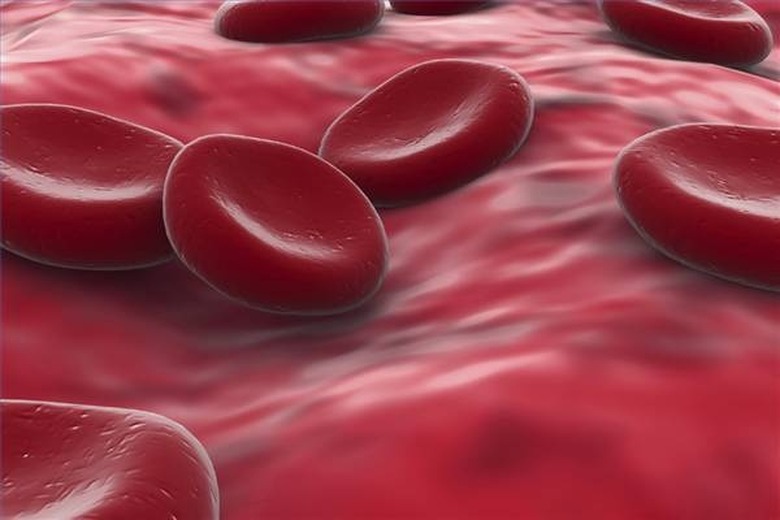Information On Blood Vessels
Blood vessels are part of your circulatory system, which also includes your heart and your blood. The three types of blood vessels are arteries, capillaries and veins. The blood vessels carry blood containing oxygen and nutrients from your heart to your organs and back to your heart again.
Arteries
Arteries
Oxygen-rich blood leaves your heart and enters the aorta, which is your largest artery. Oxygenated blood is needed for your brain cells and the cells throughout your body in order for them to function. As the blood flows through your arteries away from your heart, it branches off into arterioles, which are smaller arteries. The muscles of the arteries constrict when they need to change your blood pressure.
Capillaries
Capillaries
Capillaries are tiny blood vessels that carry the blood the rest of the way to your organs, such as your muscles. The walls of the capillaries are very thin in order to allow the oxygen to pass into your organs and also to allow waste (such as carbon dioxide) to pass back through into the blood. At this point, your blood has become de-oxygenated.
Veins
Veins
The blood flows back through the capillaries into venules, which are small veins. They are similar to the arterioles, serving as a "bridge" between the capillaries and the veins. As the blood travels through your veins, it passes your lungs, where the carbon dioxide is extracted, and your blood receives new oxygen that you have inhaled. It is then pumped through your heart, and the process continues.
Blood Vessel Diseases
Blood Vessel Diseases
Atherosclerosis is the narrowing and hardening of your arteries due to a buildup of plaque, caused by high cholesterol. This condition can result in a heart attack or stroke. Carotid artery disease is also a buildup of plaque in one or both of your carotid arteries, which are located on the sides of your neck. They can block the flow of blood to your brain, resulting in a stroke. High blood pressure, over time, can result in damage to your blood vessels. Kawasaki disease (or vasculitis) is an inflammation of your blood vessels that can result in heart disease. Raynaud's syndrome is a condition where you have brief periods of narrowed blood vessels, resulting in a blocked blood flow to your fingers or toes. Varicose veins are caused by weak or damaged valves in the blood vessels of your legs, resulting in swollen and twisted veins.
Circulatory Health
Circulatory Health
To avoid heart and vascular disease, you should maintain a healthy cholesterol level, eat a balanced diet, avoid fatty foods, do not smoke, limit your alcohol consumption and exercise regularly. Monitor your blood pressure and inform your doctor if you experience any symptoms of pain, muscle cramps, fatigue, shortness of breath, feeling lightheaded, numbness, swelling or a change in the color of your skin in the area of concern.
References
Cite This Article
MLA
Ann, Carole. "Information On Blood Vessels" sciencing.com, https://www.sciencing.com/information-blood-vessels-5333708/. 24 April 2017.
APA
Ann, Carole. (2017, April 24). Information On Blood Vessels. sciencing.com. Retrieved from https://www.sciencing.com/information-blood-vessels-5333708/
Chicago
Ann, Carole. Information On Blood Vessels last modified March 24, 2022. https://www.sciencing.com/information-blood-vessels-5333708/
